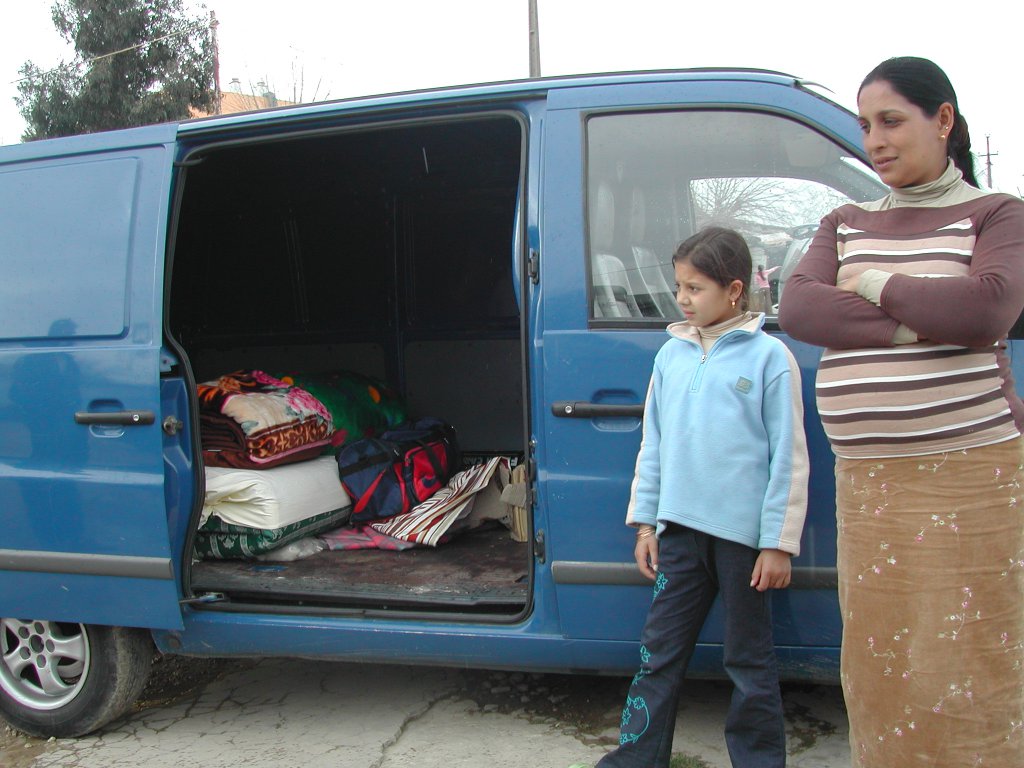Mixed Messages for Roma on Forced Evictions in the Wake of A.M.B. v Spain (decision, 2014)
13 October 2014
In January, the European Court of Human Rights delivered an inadmissibility decision (which it helpfully posted on the front page of its site). The decision has tremendous implications for the single most important issue that the ERRC litigates: forced evictions of Roma. The decision is in French. The applicants were a mother and her two children. The family identified themselves as belonging to the “gypsy ethnicity” (“ethnie gitane” in French). They had applied for social housing in Madrid and, having not received a response, they started squatting an empty social-housing flat. A national court ordered their eviction. They appealed, but the appeal did not have automatic suspensive effect (i.e. lodging the appeal did not automatically stop the eviction) and the appellate court did not rule on their request for an interim measure to stop the eviction. When a date was fixed for the eviction, the applicant applied to the European Court of Human Rights for a Rule 39 interim measure to stop the eviction and the Court granted it.

For the ERRC’s legal team, this is tremendous. While the Court has granted Rule 39s to stop Roma from being forcibly evicted in the past (see Yordanova and others v Bulgaria (2012)), the Court does not regularly grant interim measures to stop such evictions, despite how common they are. This is a legal grey area: when the Court has condemned forced evictions, it usually does so under article 8. Rule 39 interim measures are only available for article 8 matters in exceptional cases, though. Compounding this difficult is the question of exhaustion of domestic remedies. An applicant should normally have exhausted all effective domestic remedies before applying to the Court for a Rule 39. In A.M.B., the Court seems to have taken the view, when granting the Rule 39, that the appeal that was pending was not effective because it lacked automatic suspensive effect. However, at the ERRC we are aware of cases where other Roma facing forced eviction also had no remedy with automatic suspensive effect, yet were told by the Court not only that their request for a Rule 39 was refused, but that it fell outside the scope of Rule 39.
What happened next only raises more questions.
The Spanish Government then argued that the Rule 39 should be lifted, because:
- the main applicant’s parents, with whom they were all living before, lived nearby and could help them;
- the mother was receiving €560/month in benefits, and so could use that;
- there were various other resources available to this family offered by the municipality and they had not sought to take advantage of any of them.
The Court agreed and lifted the Rule 39.
The Spanish Government also argued that the applicants had not exhausted domestic remedies. The Court agreed: the appeal was still pending against the decision to evict.
The message for the ERRC’s legal team is mixed. Is the Court generally willing to make Rule 39 indications in cases involving forced evictions of Roma where certain conditions are met, and only later realised that they were not met in this case? Or was this Rule 39 an anomaly that this decision sought to correct? The ERRC is trying to help many Roma (most recently in Milan) facing forced eviction from their homes in circumstances where they will be left street homeless with no State support. What does A.M.B. mean for them?




